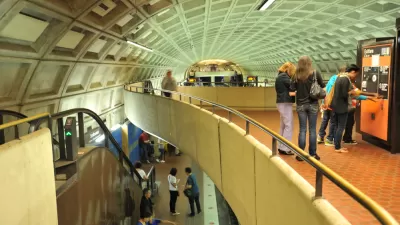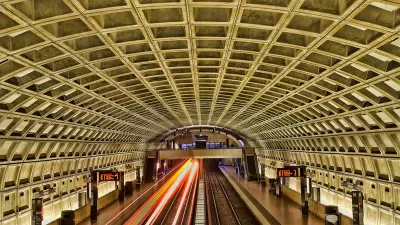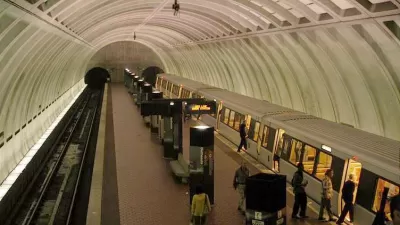A decrease in ridership is not disputed. However, ideas about the best solutions for turning things around abound.

Faiz Siddiqui reports on the ridership challenges Metro is facing in the Washington, D.C. area. The system is grappling with a ridership decrease averaging 125,000 daily riders over the last 10 years. Younger riders, ages 18 to 29 in particular, are using other modes and riding less on the weekends.
Paul J. Wiedefeld, Metro's general manager, ties ridership declines to factors outside the system, including lower fuel prices and telecommuting. However, one study pointed to service as the primary issue driving people away from Metro.
More than a year after Metro cut late-night service and reduced the frequency of trains on five of six lines amid chronic safety and reliability problems, ridership has plunged to 2001 levels. Now that the agency has secured $500 million a year in dedicated funding for capital needs, riders and their advocates say it's time to shift the focus to restoring some of that service to win back customers.
But Metro board members do not agree about which service improvements the agency should pursue. Some feel that restoring late-night and off-peak service should be the focus. Others believe the problem is reliability and increased headways, particularly at night. Still others say competition from ride-hailing services is the big concern and have proposed requesting more funding from local jurisdictions to subsidize service.
FULL STORY: When it comes to reversing the ridership slide, Metro’s leaders don’t have a plan

Planetizen Federal Action Tracker
A weekly monitor of how Trump’s orders and actions are impacting planners and planning in America.

Maui's Vacation Rental Debate Turns Ugly
Verbal attacks, misinformation campaigns and fistfights plague a high-stakes debate to convert thousands of vacation rentals into long-term housing.

Restaurant Patios Were a Pandemic Win — Why Were They so Hard to Keep?
Social distancing requirements and changes in travel patterns prompted cities to pilot new uses for street and sidewalk space. Then it got complicated.

In California Battle of Housing vs. Environment, Housing Just Won
A new state law significantly limits the power of CEQA, an environmental review law that served as a powerful tool for blocking new development.

Boulder Eliminates Parking Minimums Citywide
Officials estimate the cost of building a single underground parking space at up to $100,000.

Orange County, Florida Adopts Largest US “Sprawl Repair” Code
The ‘Orange Code’ seeks to rectify decades of sprawl-inducing, car-oriented development.
Urban Design for Planners 1: Software Tools
This six-course series explores essential urban design concepts using open source software and equips planners with the tools they need to participate fully in the urban design process.
Planning for Universal Design
Learn the tools for implementing Universal Design in planning regulations.
Heyer Gruel & Associates PA
JM Goldson LLC
Custer County Colorado
City of Camden Redevelopment Agency
City of Astoria
Transportation Research & Education Center (TREC) at Portland State University
Jefferson Parish Government
Camden Redevelopment Agency
City of Claremont





























